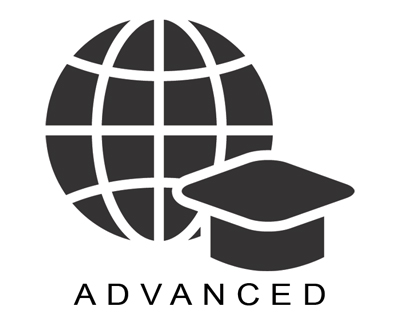This video talks about Project Drawdown, the effort to not only reduce greenhouse gas emissions, but to reach a point in which the greenhouse gas levels in the atmosphere decline. Speakers: Katharine Wilkinson Duration: 43 minutes Credits: 1.0 Member Price: $60.00 Non-Member Price: $105.00 Purchase Course Now
Tag: Carbon
VIS.211-Drawdown Georgia, A Case Study On Composting As A Mechanism to Address Global Warming-AC22.USCC
Project Drawdown has done a pragmatic assessment of transformational changes that will be necessary to curtail global warming. When we analyze these projects, we find many of them can be clustered into a broader narrative of Organic Circularity. Researchers in Georgia have adopted the Project Drawdown methodology and created a hierarchy of initiatives to achieve… Continue reading VIS.211-Drawdown Georgia, A Case Study On Composting As A Mechanism to Address Global Warming-AC22.USCC
VIS.210-A Circular Economy to Scale Carbon Farming and Compost Infrastructure-AC22.USCC
Zero Foodprint is a 501.c3 leading public private collaborations with governments in CA, CO to scale carbon farming. We generate funds from businesses and citizens and depoly grants in conjunction with trusted conservation networks like the Conservation Districts and Cooperative Extensions. We are scaling this circular economy with a long term vision of enabling direct… Continue reading VIS.210-A Circular Economy to Scale Carbon Farming and Compost Infrastructure-AC22.USCC
USE.220-CA Central Valley rangeland carbon sequestration project-AC21.USCC
Applying compost to rangelands has proven to increase the Soil Organic Matter and therefore, sequestering carbon under the ground for years to come. Speakers: Erin Levine Duration: 19 minutes Credits: 0.5 Member Price: $30.00 Non-Member Price: $52.50 Purchase Course Now
USE.210-Digging Deeper: How Compost and Cover Cropping Sequester Soil Carbon-AC20.USCC
This video gives background on the science of soil, and the research done to determine how different soil systems can affect carbon sequestration. Speakers: Jessica Chiartas Duration: 33 minutes Credits: 1.0 Member Price: $60.00 Non-Member Price: $105.00 Purchase Course Now
POL.218-Utilizing Life Cycle Assessment for Predicting Greenhouse Gas Reductions with Composting-AC20.USCC
This video gives information on the Life Cycle Assessment (LCA) and how different models can be utilized for composting. Speakers: Michael Bryan-Brown Duration: 31 minutes Credits: 1.0 Member Price: $60.00 Non-Member Price: $105.00 Purchase Course Now
FAC.216-Minimizing Energy Inputs for Compost Manufacturing-AC22.USCC
The cost of energy inputs in the form or diesel and electricity are significant factors in the overall cost of operating a composting facility. Finding strategies that minimize those inputs will reduce operating expenses as well as emissions of CO2 equivalents. The primary areas of energy use once the feedstocks are delivered to the facility… Continue reading FAC.216-Minimizing Energy Inputs for Compost Manufacturing-AC22.USCC
FAC.311-The Application of Laboratory Aeration Demand Testing to Facility Design-AC22.CREF
The efficiency with which aerobic bacteria consume oxygen and convert organic matter (OM) to CO2 is the primary measure of composting stabilization rates and a determining factor in air emissions. Process conditions (primarily temperature and oxygen) and feedstock characteristics determine the efficiency of this process. Researchers, such as McCartney, Sundberg, and others, have used highly… Continue reading FAC.311-The Application of Laboratory Aeration Demand Testing to Facility Design-AC22.CREF
BUS.233-Update on Composting and Carbon Credits-AC22.USCC
Current status in North America of carbon credit incentive programs and opportunties for organic waste composting Speakers: Scott Subler Duration: 26 minutes Credits: 0.5 Member Price: $30.00 Non-Member Price: $52.50 Purchase Course Now
BUS.217-Developing a greenhouse gas inventory for compost operations-AC21.USCC
Overview of the greenhouse gas emissions and sinks associated with composting operations and compost use, including from equipment usage, process emissions, transport and carbon sequestration. Guidance for developing a greenhouse gas inventory. Speakers: Bill Brower Duration: 24 minutes Credits: 0.5 Member Price: $30.00 Non-Member Price: $52.50 Purchase Course Now


